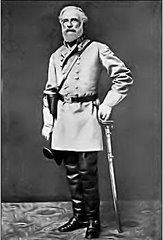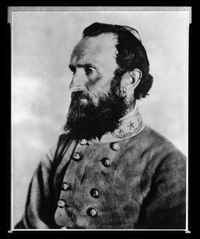Christian Music
October 12, 2007
A major way God moves His people is through music. Music is a common theme throughout the Bible. We are told to praise God with music (Psalm 33:3, 40:3, 137:4, Isaiah 23:16). Music itself was created by God and has existed since creation, and will always exist. Music is distinct from other general sounds. Music is sound, but not all sound is music. The popular styles of music change, but music itself never changes.
Music is a reflection on religion, culture, and lifestyle. Music itself is amoral- that is, without moral absolutes behind it. There is no way we can say as an absolute fact that any style of music is wrong, or that any kind is necessarily and always better than another. However relative to given points in time, music can have an impact on someone depending on the culture it relates to. In the Southeast today, we see many people using popular sounds of music with spiritual lyrics to give praise to God. There seems to be a revival-like attitude sweeping through our churches in Christianity today, as shown largely through the music.
Music is amoral, but yet can be related to given cultures, whether sinful or Godly. How can Christians today apply this to their lives? How does music influence our corporate worship, private walk with God, and every decision we make? How can we relate Christian music in particular to these questions as well?
First off, we should look to Scripture. Scripture speaks of everything either directly or indirectly. What becomes hard is knowing what to believe when it is not mentioned in the Bible directly. There are many cases of Christian doctrine, or of any issue today, that are believed even when the Bible does not directly support the belief in mind. However we should remember that sometimes the Bible may speak of something indirectly. As a somewhat extreme example, what if someone said "college football needs playoffs." There is no direct Scriptural evidence to defend that claim, but it may be a true statement. The Bible speaks, you could say, of fairness, equality, etc., and then it is up to us to decide what constitutes as Biblical fairness and equality. There is not that much said about music genre, music lyrics, etc. in the Bible directly, but that does not mean we can not reach a Biblically based conclusion with truth and objective to it. However the Bible speaking of everything whether directly or indirectly does not mean there is an absolute right and wrong to any given subject at hand. Music itself was already stated as amoral. This is a premise, however, and if shown to be false by Scripture, can be rejected. However I do not believe that Scripture would object to this, although there may be some relative sense of morality in music because it relates to the culture, people, or the person who listens to it. We should now use Scripture in finding the balance to these premises. The below will sum up what was said:
1): Scripture should be used, whether directly or indirectly, to defend anything we believe, because Scripture is absolute and speaks of everything whether directly or indirectly (presupposition).
2): Music is amoral, that is, lacking absolute moral sensitivity (premise).
3): Morality can be indirectly and relatively related to music (premise). [This does not mean that morality is absolutely relative, but that it is relatively absolute. The ‘relative’ in this case is only based off of God’s absolute standard of morality].
I have written of some of this before, getting mixed opinions. First off, for those who have read some of what I have said of Christian music, I in no way judge anyone based merely off of the music they listen to, or whether the Christian music they listen to is contemporary, tradition, or classical. I do not think that it is Biblical to just reject any style of music absolutely, whether it be Christian or secular. I have heard of people who would essentially bash contemporary Christian music, and I find no direct or indirect Scriptural evidence to do such a thing. However we should keep a few things in mind.
For one thing, the church is distinct from the world. The church should not just mimic the world, even in the name of gaining followers. Another thing we should keep in mind is what point number three (seen above), gets at. Music and culture are related, and culture and religion are related as well. Essentially, all culture is, is religion externalized. Music is music, but we can tell a lot about a culture based on its song. Therefore, there is some sort of moral sensitivity that should be placed in music. This leads me to my third point. As Christians, anything we do, especially if done directly in the name of Christ, should be done with complete reverence and fear. If music images a culture, then church music, at some level, should be unique, because the church is unique.
Once again, we should not declare anything as completely absolute. We should be bringing the nations to Christ, and so in theory, if the world had a largely unified culture, unified in Christ (a utopian view), then there would be no reason to be distinct. In the same sense, it is true that the church is to be ‘in’ the world. Furthermore, the world in the sense of the universal planet earth, is filled of both Christians and non-Christians. Even a culture within the world is filled of both Christians and non-Christians. There are some traditions that are held by both Christians and non-Christians. The difference is found in the motive. What often separates music as being glorifying to God or not is the motive of the musician, and all those who listen to or sing or play the music.
Here, we see a two-fold relationship. On one hand, logic seems to tell us that Christian music should be separate and unique from other music. On the other hand we seem to see that Christian music can give full glory to God no matter what genre it is of. Music is music, and the styles may change. The sound of classical Christian music today may have been considered ‘pop’ music five hundred years ago (in theory). Will people see bands such as Third Day, Mercy Me, etc., five-hundred years from now in the same way we see people such as Martin Luther and John Newton today?
So once again, there is this nagging two-fold relationship. We dug deeper, but the two sides are still there. They haven’t yet reached a point. We can all reach different conclusions, and perhaps, you have already disagreed with my logic. But now I desire to write what my conclusions would be.
All of our music should be done with full reverence to God. Any music written for God should be done in fear. This does not mean that songs can not be ‘simple’ and still good. But the song should be something that comes from the heart, and the heart should be focused on God. Therefore, any Christian song written should be bold, firm, and attesting to the grace of God.
Beyond this, I believe that there is a difference between corporate church music and private Christian music. The Christian is a Christian in personal sense, but also in the corporate sense. When a portion of the body of Christ comes into God’s presence and assembles for corporate worship, they are called out of the world. They are called boldly, and they should come in a manner that shows their corporate relationship with Christ. We are the body, not a bunch of bodies. We are one. We are the body and the bride of Christ. The music should reflect God’s work with His people, and His people’s work together with God. I believe that today’s popular Christian music reflects more of the personal relationship with Jesus, while traditional or classical hymns reflect the overall picture. Both are important and have their place, but corporate worship is designed for the overall picture.
When I am driving down the road by myself, I don’t necessarily enjoy listening to classical music or corporate hymns. It would be more likely of me to turn to a popular Christian radio station than to put in a CD of old people singing older hymns. But when in the presence of covenant renewal service, there is something much more powerful about these hymns. They have beauty and truth. They have bold statements that are not seen in today’s Christian music such as "Jesus, What a Friend of Sinners," "Amazing Grace, how sweet the sound," "We are God’s People, the chosen of the Lord; Born on His Spirit, established by His word," and "Lift High the Cross," all just to name a few. There are some popular Christian songs today with powerful lyrics, but many of them lack what the hymns so richly have. In enjoy some contemporary Christian such as Casting Crowns and Three Driven Nails, but I don’t much care for a lot of what I hear on popular Christian radio. We must be lyrically and musically sensitive to what we label as Christian music. What if we label some sappy or watered-down ‘inspirational’ message as Christianity? A non-Christian might say, "If that is today’s Christian music, then I don’t want to be a part of today’s Christianity." Once again, music reflects the person and the culture.
But this does not reject bringing contemporary music to God. Someone has to write the music. Sometimes there are some traditional or Reformed churches today that seem scared of presenting any new Christian music. I don’t think this is good. We are to "sing to the Lord a new song" (Psalm 33:3). Of course, reading further in the verse, it says to "play skillfully with a loud noise." There is nothing wrong if the Christian music is loud as long as it is reverent and bold. The same chapter tells us to "Praise Him with the Psaltery and with an instrument of ten strings." Music should reflect the Bible. We are told to "Praise Him with the Psaltery."
I also believe we should be careful in relations to the style of Christian music that is brought out. Rightly or wrongly, some styles of music relate to a sinful culture. It becomes dangerous if Christian music is played in the style that portrays a sinful culture. Such styles may include rap music, hard rock music, etc. It becomes worse when the Christian band or artist dresses like the norm of this style, perhaps with tattoos, excessive body piercings, etc. We should desire to bring all the nations to Christ, but I’m not sure playing their style of music is the best way. We should alter an alternative to their sinful lifestyle found in the hope of Jesus. We should offer community to a self-centered lifestyle, rooting ourselves in the doctrine of the Trinity. Playing to their level is not necessarily the correct way to go.
Also, if someone is a Christian artist, they should make sure the way they live their lives attests to the grace of God. I also do not particularly care for a Christian to assume that any music produced by any Christian must be directly Christian. As a Christian and a musician myself, I do write Christian songs, but I also write secular songs. I try to keep it all to the glory of God and all consistent within the Christian worldview.
So when we hear Christian music, we should ask six basic questions:
1): Does the style of music seem to be influenced by and does it seem to promote a sinful lifestyle?
2): Is the music bold enough lyrically and musically to be declared as Christian music? (Keep in mind if it is declared as Christian music, then it becomes a much stronger representative of Christianity.)
3): Does the music seem to simply mimic the world music for popular gain and attention?
4): Is this music written and played to the full glory of God?
5): Is this music better in the context of corporate worship, or private listening?
6): Does the author or artist of this music live their lives attesting to God's grace?
In my opinion, if the music passes this little "test," then it is good Christian music. I also believe that even if the music does not necessarily pass this test completely, then it should not necessarily be criticized. God may be pleased even with our imperfect attempts to praise Him, if our hearts are in the right place.
Continue to guard what you hear with the Word of God, but also keep in mind how you should interpret God’s Word correctly. One of the next blogs will address this question. Remember the importance of music. It is a major way God moves His people. Therefore, we should be sensitive to our music, but also praising with it. We should lift high our voices, so that we may "Lift High the Cross."
What do you think?
God bless America
Pray for our Troops
God bless His church
October 14, 2007
Ryan Hampton
 Today is Halloween. It is the day we carve pumpkins, trick-or-treat, tell ghost stories, or perhaps, complain about the 'satanic' influence of this day. Some consider it a holiday. Some consider nothing at all. Some call it the Devil's holiday. Some people refuse to recognize it or do anything for it.
Today is Halloween. It is the day we carve pumpkins, trick-or-treat, tell ghost stories, or perhaps, complain about the 'satanic' influence of this day. Some consider it a holiday. Some consider nothing at all. Some call it the Devil's holiday. Some people refuse to recognize it or do anything for it.  On October 31, 1517, Martin Luther (seen on left) nailed his ninety-five thesis on the church door at Wittenburg (or perhaps mailed them, but the traditional thought is that he nailed them). This sparked the Reformation. Most churches celebrate Reformation Day the last Sunday of October, but the historical date of it is October 31st.
On October 31, 1517, Martin Luther (seen on left) nailed his ninety-five thesis on the church door at Wittenburg (or perhaps mailed them, but the traditional thought is that he nailed them). This sparked the Reformation. Most churches celebrate Reformation Day the last Sunday of October, but the historical date of it is October 31st. 














